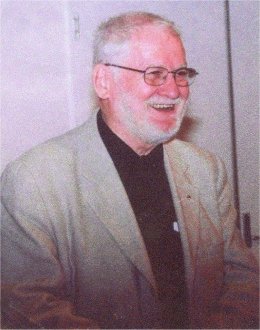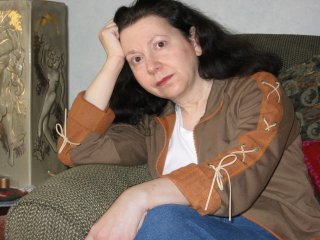AUSTRALIAN POETRY BOOK REVIEWS
Taylor, Edwards, McBryde, Adelaide 9, Cronin, McMahon, Hull, Mansell, Armand, O'Connor, Wilson, Brown, Jenkins
By Thomas Shapcott and Sharon Olinka













Gotterdammerung Café by Andrew Taylor

|
Andrew Taylor has been publishing poetry for decades now. Originally I counted him as one of those poets who seemed to cluster around Vin Buckley and Melbourne University. It included Chris Wallace-Crabbe, Evan Jones, Vin of course, Noel Macainsh (whose son Greg became famous before you were born, children, as one of the main singers and songwriters for a once celebrated rock band called Skyhooks) and of course Bruce Dawe, who later migrated to Queensland and fame. Fame, as in becoming one of Australia's best selling poets in the days ... |
Scar Country by Rebecca Edwards

|
I was lucky enough to hear Rebecca Edwards read her own poetry at the Brisbane Poetry Festival (in the Judith Wright Cultural Centre, so magnificently named to commemorate one of our own universal poets) last August. Her voice did every justice to the poems. This strong, beautiful woman of no pretensions and a downright commitment to what she had written, held the audience spellbound. And no wonder. It is always exciting to discover a new voice. One which has guts and precision and a ring of confidence. The poems are full of self-doubt and ... |
The Still Company by Ian McBryde and Greg Ridell

|
The Still Company is quite different. Here we have the poems of one author, Ian McBryde, who also plays the extensive drum sequences which are a dominant part of the listening experience. The words themselves are placed within a wider context of this drum ostinato and various other acoustic contributions. Sometimes the effect strongly enhances the overview of the poem context (especially the ostinato drumming, which locates the words in a framework of tension and intention). In the particularly ... |
Adelaide 9 by Mike Ladd, David Ades, Ioana Petrescu, Shen, Rory Harris,
Cath Kenneally, Ken Bolton, Stephen Lawrence, Heather Sladdin

|
Each poet has sufficient aural space to establish a voice and a personality, and as a sequence the presentation keeps the listener in there and attentive. The acoustic effects are minimal, but enhance the overall listening pleasure. Of the individual poets, Mike Ladd is presented with absolute professionalism (natch!), David Ades has only two poems, but the second one, 'The Work of My Face', is quite long and benefits greatly from the "sound" of the reading. Ioana Petrescu has a sharp group of short poems, ... |
My Lover's Back by MTC Cronin

|
M.T.C. Cronin has been publishing for over a decade now, and has produced an almost astonishing number of books. This is her seventh collection, but I have to point out that since this was published last year (2002) she has brought out a further two volumes, The Confetti Stone and Other Poems and Beautiful, Unfinished (Salt, 2003). This indicates certainly a prolific mind and imagination, but also a furiously driven and urgent engagement with poetry, language, ways of exploration. It is not altogether surprising that her work tends to group ... |
idle & drunk in heaven by Denis McMahon

|
The biographical note on the inside cover tells us that "Denis McMahon was born in Broken Hill, N.S.W. and spent his early childhood in western N.S.W. and New Guinea" and that "He was educated at Shore and UNSW". More curiously, the cover also feels the need to inform us that "From 1978-1989 Denis was best known as a rhetorician. He represented Australia in debating and was regarded as one of the leading forensic orators of his generation". In case we need to know, he is also a "dangerous tournament player" in Chess. But it is as a poet that we ... |
Gangsters and The City of Detroit is Inside Me by Coral Hull

|
Gangsters is a first person monologue in 25 short sections, told from the point of view of Crystal, who has been having a violently intense relationship with Frazer, a Melbourne sado-crook. The novella explores their mutual dependence and independence, the violence needed by both of them, and the violence that threatens to destroy both of them. The personal monologue is sustained with a language that is both intensely idiosyncratic and colloquial. It has a great poetic range in that it draws upon imagery and metaphor with almost riotous free ... |
About the Reviewer Thomas Shapcott

|
Thomas Shapcott was born in Ipswich, Queensland, one of Australia's mining-industrial areas. He is a twin. Left school at 15 but did an Arts Degree at Queensland University part-time in the 1960s, when he was working as a Public Accountant and had a young family. His first book of poems, Time On Fire (1961) received the Grace Leven Prize, then the only major poetry award in Australia. He has subsequently published 14 collections of verse, the most recent being Chekov's Mongoose (2000, Salt Publishing), named by Elizabeth Jolley as one of her '3 books of the year' in "The Age", Melbourne. He has also published 6 adult novels, 4 novels for younger readers and various other book titles. Awarded an OA in 1989 and an Hon.D.Litt. from Macquarie University, he was Director of the Literature Board of the Australia Council 1983-90 and Executive Director of the National Book Council 1992-1997. In 1997 he was appointed the initial Professor of Creative Writing at Adelaide University. In 2000 he received the Patrick White Award. |
[Above] Photo of Thomas Shapcott by George Manos, 2003.
The Fickle Brat by Chris Mansell

|
Her voice is sensual. Like pieces of Japanese paper rubbing together. It's a trustworthy voice. Familiar as one's neighbor, sister, or a woman you knew at school. Yet she's also the woman we thought we knew - and didn't know at all, as fate would have it. She's the woman we once saw baking bread, from an open window. But never the sweat that ran down her face. In her fierce resistance to stereotypes of femininity, her poetry reminds reminds me of Meredith Wattison. "As if you know what your element is/ And it isn't ... |
Land Partition by Louis Armand

|
Welcome to semiotics unlimited. You can't dance to it, but the beat, relentless as disco, goes on and on. Referential, slippery, and glacially abstract, Louis Armand's use of language will easily alienate everyone, except for elitist academics. It's truly one of the worst books of poetry I've ever read. Although the previous statement is harsh, I will justify it by saying that Armand's poetry expresses a hatred of the body. This is apparent in the poem 'Nightwatch', with its coiled philosophical searches and long lines. From "useless human pains" to "the ... |
The Forever Lands by John Kirk and Mark OConnor

|
On the surface, this is what would be called in the U.S. a "coffee table book". It's handsomely done, a real crowd pleaser. The arresting image on the front cover, that of Kata Tjuta (The Olgas), would entice anyone to open this book and discover the aesthetic rewards inherent in the format. But the format is not merely created for display. Not at all. Despite the glossy surface, something sly and mercurial is at work here. And I'm glad of it. The last thing I want to see in a book is Australia all ... |
Edwin Wilson: Collected Poems 1967-2002 by Edwin Wilson

|
One comes away from this massive volume with the impression that Wilson carefully observes the world as it is, and not from an emptiness within, a desire merely to catalogue and define it. He is knowledgeable about botany and history, but, more importantly, he knows about the human heart. The dark night of the soul, often a subject in poetry, can in a lesser poet's hands appear mawkish and strained. Wilson never makes crucial missteps in this regard. There's a positive dislike in his work for New Age rhapsodies, a too-facile harmony. His is a flawed ... |
Text Thing by Pam Brown

|
You know when a poet loves language. It sparkles, wiggles, and trips the light fantastic all over the page. Words take unexpected detours and routes, all for the sheer pleasure of seeing where the journey ends. Look, Ma - no hands! Riding on a wave of bravado is exhilarating. Tongue-in-cheek, for poets, can be wickedly clever. But more so when you're young. I see the ageing beatniks, hippies, and motley assortment of mismatched hipsters show up at Spoken Word readings, and my heart sinks. They still strut their stuff, with attitude to burn. They ... |
A Break in the Weather by John Jenkins

|
This book proves that the novel in verse is still a viable art form. It's a meditation on nature with the theme of "we're all connected" - weather as a metaphor for spiritual transformation. Jenkins genuinely loves Australia: from the little details of a suburban yard to the grand panorama of the Northern Territory. There's a wholeheartedness about how he embraces the world he sees: aware of its faults, but never stinting in his praise. So it's fitting that A Break in the Weather is, first and foremost, a love story. Bruce and Miko, both scientists, are ... |
About the Reviewer Sharon Olinka

|
Sharon Olinka is a New York reviewer and literary critic. Her poems have been published in journals such as Colorado Review, Onthebus, Poetry New York, Luna, Poetry Wales, and Long Shot. Her first book of poems, A Face Not My Own, was published by West End Press in 1995. Her writing reflects a belief in the strength of multiculturalism in the United States, and a commitment to a global community of writers. Sharon Olinka lives in New York City. She traveled extensively in Bali and Australia. She has written for American Book Review, and in 1997 she edited a special issue of ABR on Australian poetry; it was published with an essay by her on Australian women poets. |
[Above] Photo of Sharon Olinka by Audrey Gottleib, 2001.
I Next I
Back I
Exit I
Thylazine No.9 (March, 2004) |



